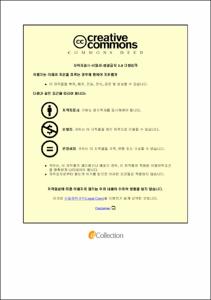Prognostic significance of CD200 expression and correlation with COX-2 expression in cutaneous melanoma
- Abstract
- Background: Immune escape by tumors can occur by various mechanisms. As immunotherapy targeting immune checkpoints such as Cytotoxic T-lymphocyte-associated protein 4 and anti-programmed cell death protein 1 is considered as a good alternative to conventional chemotherapy in melanoma patients, more research on new immune checkpoints, which allows better therapeutic efficacy with less toxicity is needed.
Objective: We evaluated CD200 and COX-2 expression in melanoma and their correlation, and determined their effects on clinicopathological characteristics including survival data.
Method: Tumor samples obtained from primary melanoma lesions were analyzed for both CD200 and COX-2 expression by IHC analysis. Co-localization of PD-L1 and COX-2 expression was analyzed by double fluorescence staining. Lastly the BRAFV600E A375 melanoma cell lines were used to evaluate the effect of COX-2 inhibition by celecoxib on expression of CD200 in vitro. Tissue specimens from 118 patients of melanoma were evaluated by immunohistochemistry for CD200 and COX-2 expression. Clinidopathological features including survival data were analyzed according to the expression of CD200 and COX-2.
Results: CD200 and COX-2 were positive in 47.4% and 48.3% of melanoma patients. Both showed a tendency to be associated with aggressive clinicopathologic features. CD200 expression positively correlated with COX-2 expression in human melanoma cells. CD200 and COX-2 expression in melanoma were independent prognostic markers for worse overall survival. Lastly, inhibition of COX-2 activity by celecoxib down-regulated the expression of CD200 in BRAFV600E melanoma cell lines.
Limitations: Status of BRAF and NRAS mutations was not analyzed in melanoma patients. We could not investigate the difference according to the subtype of melanoma.
Conclusion: Our study suggests that CD200 expression by melanoma cells is associated with more aggressive pathologic features and worse survival data. Anti-CD200 treatment might be therapeutically beneficial for melanoma treatment.
- Issued Date
- 2018
- Awarded Date
- 2019-02
- Type
- Dissertation
- Keyword
- CD200; Tumor microenvironment; immune checkpoint; Melanoma
- Alternative Author(s)
- Lee Mihye
- Affiliation
- 울산대학교
- Department
- 일반대학원 의학과
- Advisor
- Jee Ho Choi
- Degree
- Doctor
- Publisher
- 울산대학교 일반대학원 의학과
- Language
- eng
- Rights
- 울산대학교 논문은 저작권에 의해 보호받습니다.
- Appears in Collections:
- Medicine > 2. Theses (Ph.D)
- 파일 목록
-
-
Download
 200000176968.pdf
기타 데이터 / 928.31 kB / Adobe PDF
200000176968.pdf
기타 데이터 / 928.31 kB / Adobe PDF
-
Items in Repository are protected by copyright, with all rights reserved, unless otherwise indicated.